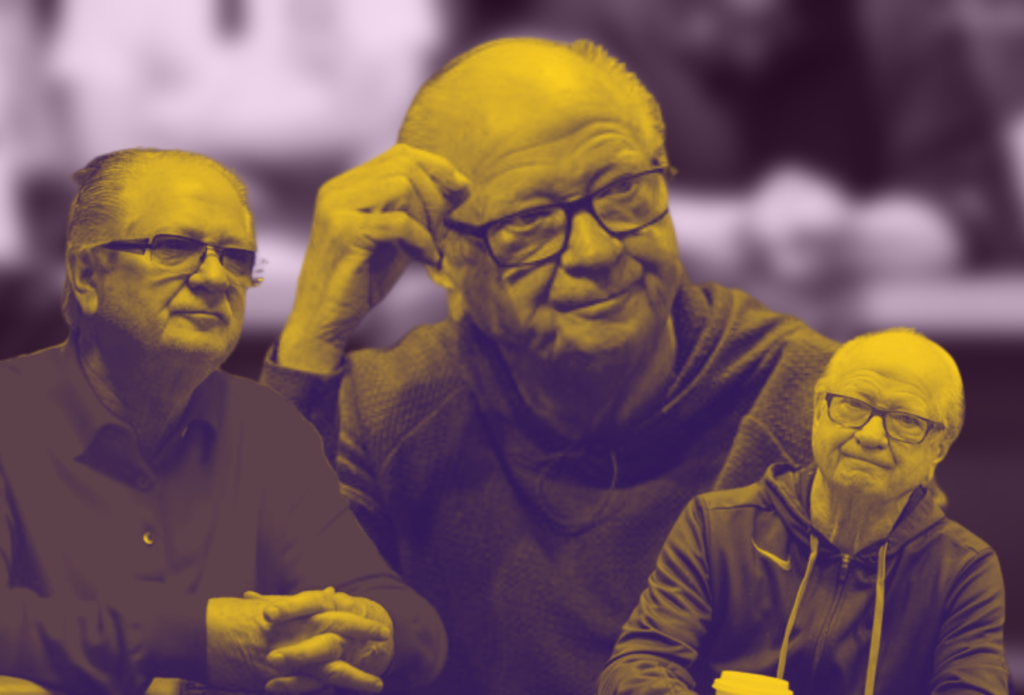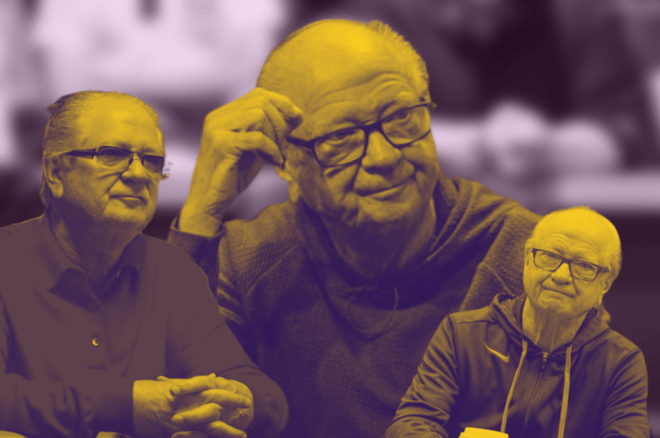
Billy Baxter is a two-time Hall of Famer. Back in 2006, he was inducted into the Poker Hall of Fame alongside T.J. Cloutier, and more recently in August of this year he was one of ten inductees into the inaugural class of the Sports Gambling Hall of Fame at Circa Resort & Casino.
If you’ve been involved in either industry, Baxter is a legendary name, not only because of what he’s accomplished in his own career that’s spanned more than 50 years but also for what he’s achieved for players across the county. Whether you know it or not, if you’re a poker player you owe a debt of gratitude to Baxter, a recent guest on the PokerNews Podcast where he talked sports betting, battling the IRS, and the World Series of Poker (WSOP).
Induction into the Sports Gambling Hall of Fame
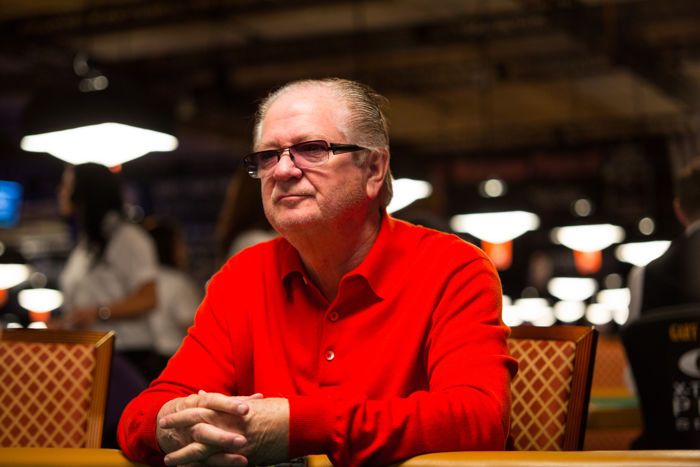
As mentioned, Baxter was one of ten inductees recently into the inaugural class of the Sports Gambling Hall of Fame.
Rules and regulations for the Sports Gambling Hall of Fame were created and voted on by an advisory board consisting of 16 members, all of whom have spent much of their lives in the sports gambling industry. Over the past several months, the board met, discussed and voted on the development of the inaugural class. A 75 percent approval rating was needed for an individual’s induction to pass.
“To be honest, when they first called me about it, I didn’t realize they were gonna make as big a deal out of it as they did,” Baxter said. “It really turned into a pretty nice event I thought, and looking back on it, the people that were inducted – I think if I’m not mistaken, that was the first year they’ve ever had it – and they did a good job of presenting how sports gambling came about and all the different people that made different contributions. I thought it was really well put together.”
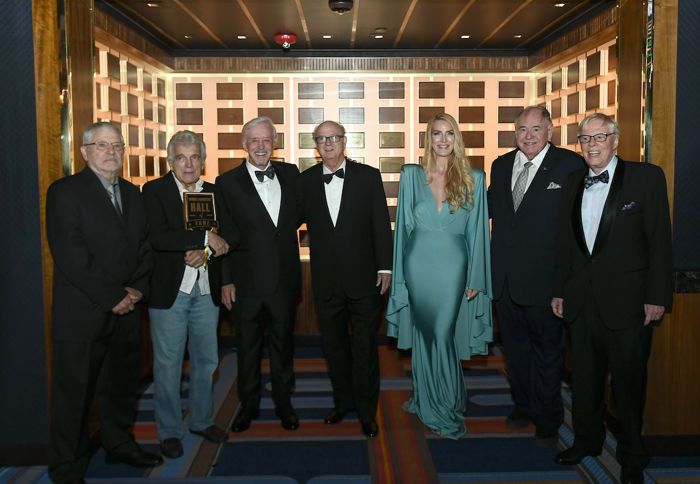
For Baxter, one of the primary reasons he was voted in was his advocacy and mastery of halftime betting.
“A lot of people didn’t realize that that when I first came to Las Vegas in 1975, halftime betting didn’t hardly exist. I kind of got everybody interested in it, and now it’s become a kind of a household staple. In other words, everybody has it and it’s a lot of fun. You get to watch a little bit, then you have an opinion, even if you didn’t have an opinion before the game started, and so halftime betting is very challenging. I liked it a lot because it’s something that I seem to have an eye for, and what it amounts to is some people can watch a game and see it one way, and I feel like I see it another way. So that’s good for me.”
So, does the Sports Gambling Hall of Famer still bet? You’d better believe it.
“I bet almost every halftime there ever is,” he said with a sly grin. “That’s what I like to do best actually.”
As for his favorite sport, that would be the National Football League (NFL), which is set to kick off their new season in early September.
“I think football is gonna always be the king. There’s just something about it, especially pro football … I never did drugs but I would compare it to being on crack cocaine. Pro football really gets everybody charged up. I love football season.”
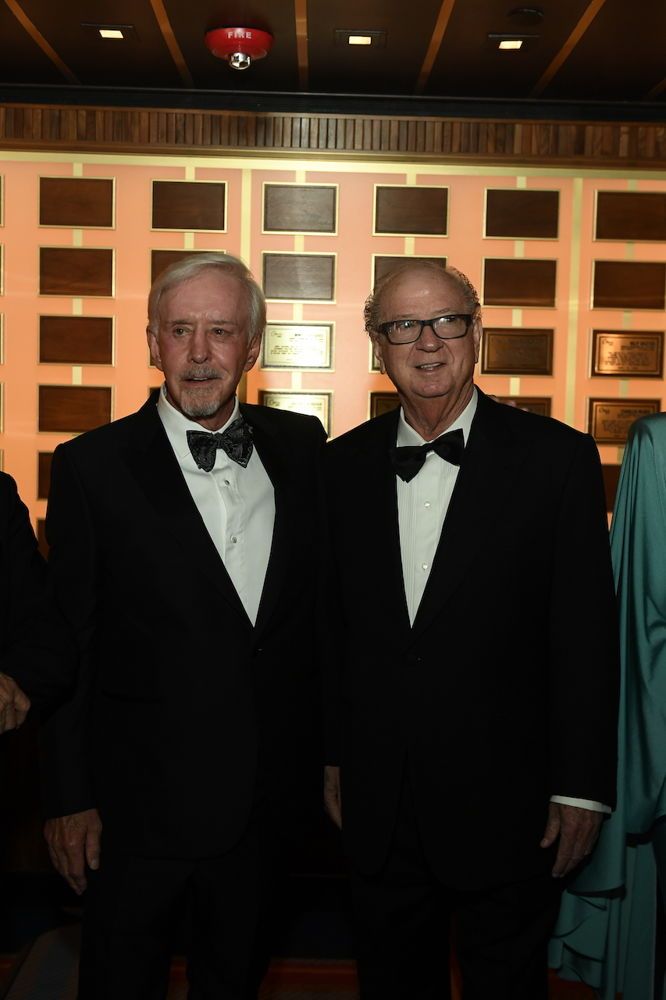
Being from Georgia, Baxter always roots for his hometown teams, unless of course he bet against them.
“My favorite team is whichever team I’m betting on,” he admitted. “I love it.”
Speaking of betting sports, Baxter’s longtime friend and poker peer – the late, great Doyle Brunson – did his fair share. So, how does Baxter view Texas Dolly’s sports betting skills?
“Well, you know, Doyle, I would say he’s almost a legendary sports bettor,” said Baxter. “He probably, in his lifetime, won $50 million playing poker and I’m not sure he probably didn’t lose about $40 million of it betting sports! He loved to bet and he did it his entire life. I can tell you this, he won a lot of money playing poker and it kinda funded his betting habit.”
Baxter also referenced Brunson after he was asked what he’s done with his seven WSOP gold bracelets.
“I think I gave one to my brother and one to another relative, but oone time, the reason some of them are missing was that I actually lent [some to Doyle]. One time they were making a picture of Doyle’s ten but he couldn’t find all ten. I actually lent some of them to take the picture they were doing at the time. But I still have some of them and I just have them here at home. I’ve got some of the old ones, like, some of the first things like watches and different things they gave.”
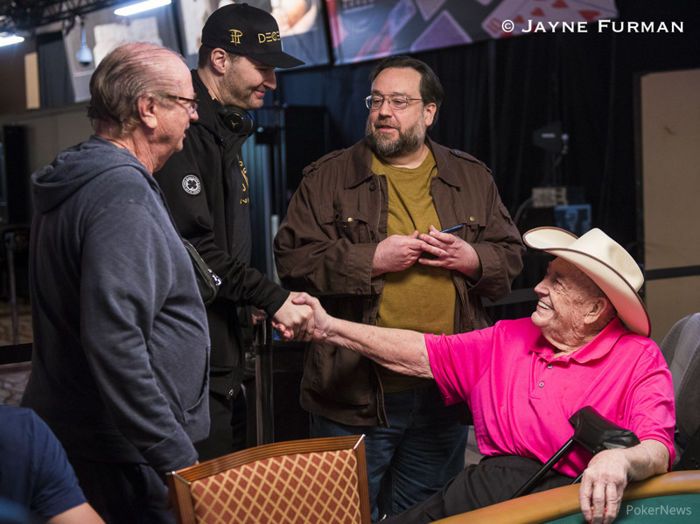
Heads-Up Against the IRS
The other thing Baxter is well-known for in sports gambling, especially in poker, is for a high-profile court case that was decided in 1986 and still has implications to this day. It was Baxter v. United States, 633 F. Supp. 912 (D. Nev. 1986) and basically it determined how the U.S. federal government views taxes when it comes to gambling income of a professional gambler.
As the Wikipedia entry for the case explains: “Because of this case, gambling winnings in the United States can in certain cases be treated as business income for federal income tax purposes. This means that in some cases expenses and losses can be deducted from gambling winnings in arriving at the net earnings from self-employment, and that winnings can be placed into retirement funds.”
“They were saying that gambling was just luck. It was like a person going up to a slot machine and dropping a dollar in.”
It’s no exaggeration that every sports gambler and poker player in the United States owes a big thanks to Baxter, who spent a lot of time, energy, and money fighting the Internal Revenue Service (IRS).
“I kind of forget that I even done it,” he chuckled. “What a lot of people don’t know is what it was really all about. This was back when taxes were the very highest. When you were in the highest tax bracket, it was 50 percent. So, when I first came to Vegas in 1975, I won [a bunch of tournaments for] well over a million dollars, which was quite a bit in 1975.”
He continued: “I had already paid the 50 percent on that kind of income, but then they came back and said I owed them 20 more percent. They were saying that gambling was just luck. It was like a person going up to a slot machine and dropping a dollar in and winning a million dollars. That’s not earned income. So, I actually paid 70 percent on that money that I won back in the seventies.”
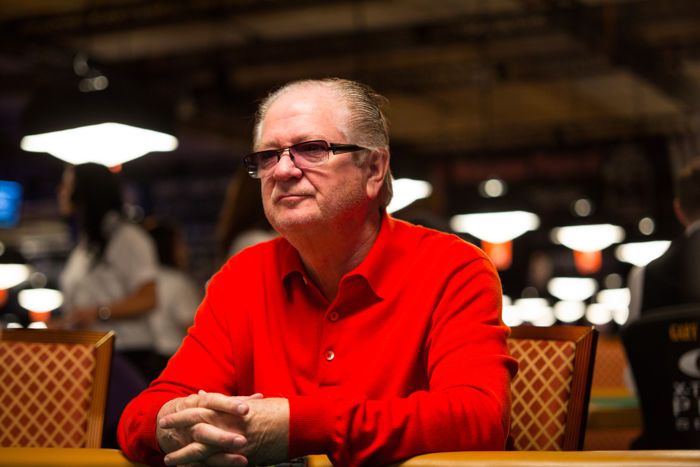
Baxter was none too pleased and consulted with his lawyer, who told him it was a civil matter.
“He said, ‘Bill, if you don’t pay this money, after a few years with penalties and interest, you’ll never get out of debt to the IRS. So, I recommend you pay the money – the 20 percent – and then sue them for a return.’ So that’s what we did.”
Baxter’s case worked its way through the legal system and wound up in a courtroom in Reno.
“I remember the judge, this was once again not a criminal case, but the man representing the IRS told the judge, it’s just like putting a dollar on the slot machine, a million dollars, all that. This is just not like a job, blah, blah, blah. I remember what the judge told the guy. He said, ‘Well, I’ve listened to your argument, Mr So-and-so,’ or whatever his name was, he says, ‘I find the government’s argument against Mr. Baxter to be ludicrous. I wish you actually had some money and could sit down and play Mr. Baxter in lowball and just see how you would do. I think you would find out that this is not just luck. I find y’all’s argument to be ludicrous.’ He then threw him out of there.”
“The case is in the law books today. It’s right there for people to cite if they have some type of case like that today.”
Baxter continued: “So, then they appealed it to the Eighth Circuit Court of Appeals in California. We went over there and we beat them again. Same thing, he threw them out. Then they threatened to go to the Supreme Court. They tried to make a deal with me for half the money. It was all about money, they just want money. So, I just told them, I said, ‘Listen, I paid my taxes. I don’t owe any money. I’m not making any deals.’”
The government continued to threaten the Supreme Court, but in the 11th hour they dropped the case and returned his money. In the process, a legal precedent was set.
“The case is in the law books today. It’s right there for people to cite if they have some type of case like that today,” said Baxter. “So, yeah, it was somewhat of a contribution, I guess to the poker community.”
Poker Legend Being Inducted in Inaugural Class of Sports Gambling Hall of Fame
The WSOP Marathon
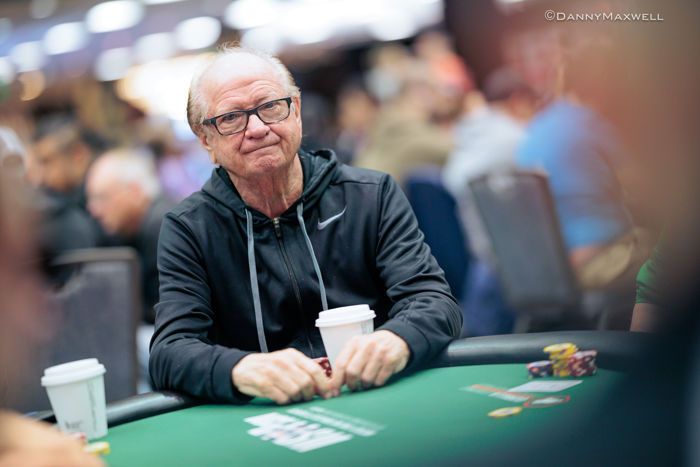
A seven-time WSOP gold bracelet winner, Baxter came one spot short of an eighth this past summer when he finished second out of 8,180 runners in the 2023 WSOP Event #48: $1,000 Seniors Championship, good for $473,212.
“Well, to tell you the truth, I don’t play a lot of tournaments anymore because of the hours. The tournaments really and truly are set up to where someone, anybody probably over 60 could never win a tournament,” Baxter said of his run. “But, it would be almost impossible. Let’s put it that way.”
He continued: “I don’t think anybody as old as me has ever won a tournament or probably even came close. But, it was a five day, it was over 8,100 people in that tournament. I had quite a good run actually, but it was very draining. It was a lot of fun and all, but I kind of run out of gas a little bit at the end.
“I played pretty well up to toward the end, but I just kinda, well, I wasn’t happy with my play at the end. The last hand I played, I kind of gave it away. I never play without looking at my hand, but I looked at one card and opened it. I probably wouldn’t have played that hand if I had looked at the other card, which is something I always do. I was told a long time ago it doesn’t cost any extra to look at your hand. So, I wouldn’t recommend playing without looking at your hand.”
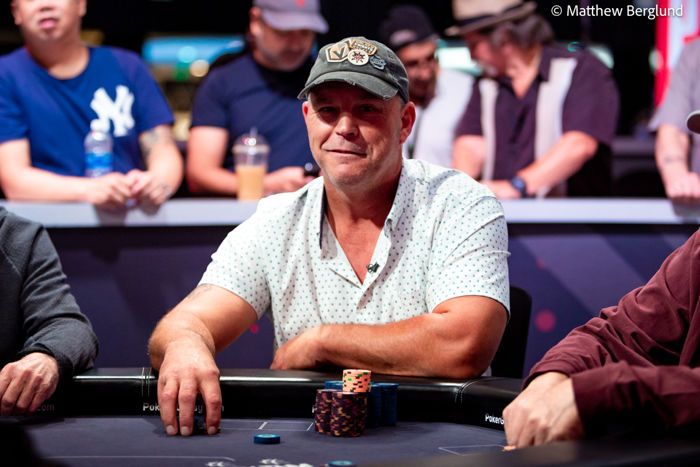
For those wondering, Baxter shoved after looking at the Q♣. Lonnie Hallett called with ace-eight suited, and Baxter’s other card turned out to be the 2♥. Despite that hand, Baxter had a fun experience and was impressed by how much the WSOP has grown.
“I tell you it’s really, really well run. They have it down to a science. It’s not easy to handle these crowds. They’re handling 8,000 people in tournament. Some of them have as many as 20,000 and, the payouts and moving people around and everything. It’s quite a production, and you’ve really got to have a lot of expertise to pull something off like that. So, I got to give it to the WSOP, they did a fantastic job, and it’s only going to grow because people love it.”
As for poker, Baxter still plays cash on a regular basis, though he doesn’t plan on playing too many tournaments, aside from at least one that is.
“I still plan on playing the WSOP Main Event for a few more years and I’m looking forward to it,” he said with his southern drawl. “Although I know the chances of winning will probably be slim to none, I still want to give it a try.”
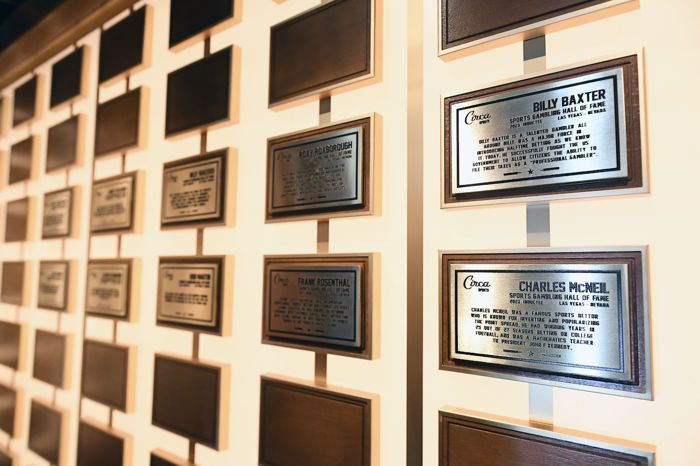
Seven-Time WSOP Bracelet Winner Billy Baxter Wins $400,000 on Tiger Woods Bet
*Images courtesy of Circa and Sports Gambling Hall of Fame.

Executive Editor U.S.
Executive Editor US, PokerNews Podcast co-host & 2013 WSOP Bracelet Winner.




